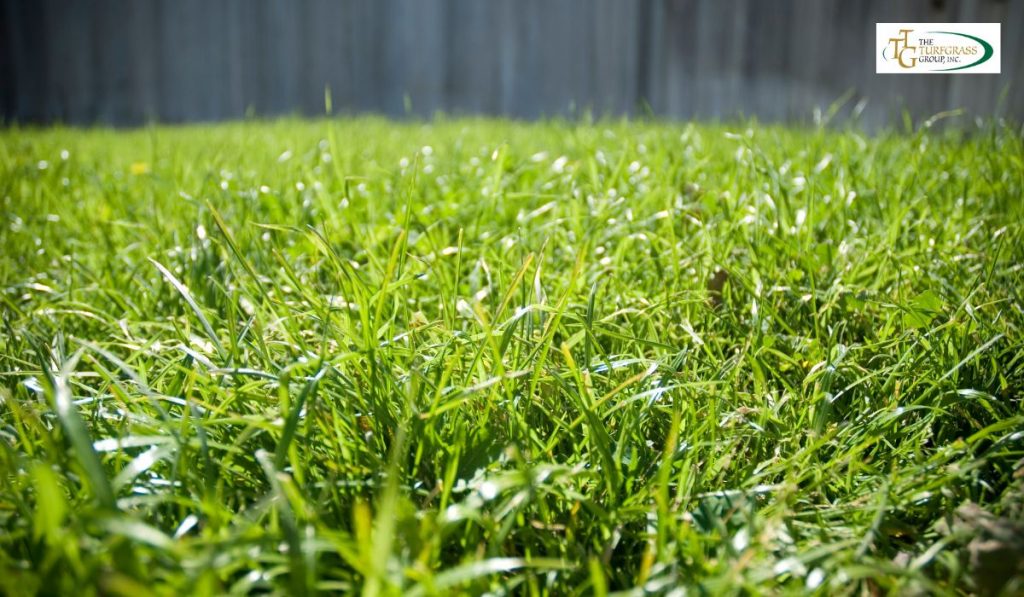
The drought-tolerant Bermuda grass’s hardy and environmentally beneficial qualities are becoming more and more well-known in the field of sustainable landscaping.
As water scarcity becomes a pressing global issue, the need for water-wise landscaping solutions has never been more crucial.
In this blog, we delve into the many facets of drought-tolerant Bermuda grass, exploring its benefits, optimal conditions for growth, and how it aligns with sustainable landscaping principles.
Understanding Drought-Tolerant Bermuda Grass
Drought-tolerant Bermuda grass, scientifically known as Cynodon dactylon, has gained prominence for its remarkable ability to thrive in arid conditions.
This hardy grass species has adapted to withstand prolonged periods of water scarcity, making it an ideal choice for regions facing water restrictions or those looking to reduce water consumption in landscaping.
Key Features and Benefits
Water Efficiency
One of the primary reasons for the popularity of drought-tolerant Bermuda grass lies in its water efficiency.
Unlike traditional grass varieties that demand copious amounts of water, Bermuda grass can flourish with minimal irrigation.
It not only reduces water bills but also contributes to water conservation efforts.
Resilience in Adverse Conditions

Bermuda grass exhibits exceptional resilience in the face of challenging environmental conditions.
Whether faced with high temperatures, minimal rainfall, or poor soil quality, this grass variety persists, maintaining its vibrant green hue even in less-than-ideal circumstances.
Versatility in Landscaping
Beyond its drought-tolerant qualities, Bermuda grass is remarkably versatile in landscaping applications.
From residential lawns to commercial spaces, parks, and sports fields, this grass variety adapts to various settings, offering a lush and visually appealing landscape that requires minimal maintenance.
Optimal Conditions for Growth
Drought-Tolerant Bermuda Grass and Sunlight
Bermuda grass is known for its love of sunlight. Optimal growth occurs when the grass receives at least 6-8 hours of direct sunlight daily.
It is an excellent choice for landscaping projects in sunny regions where other grass types might struggle.
Well-Draining Soil for Maximum Performance
Ensuring well-draining soil is paramount to harness the full potential of drought-tolerant Bermuda grass.
This grass variety thrives in soil that allows water to infiltrate quickly, preventing waterlogged conditions that can hinder its growth.
Proper Irrigation Practices
While drought-tolerant, Bermuda grass still requires some level of irrigation.
However, the key lies in adopting smart irrigation practices, such as deep and infrequent watering, to encourage the development of a robust root system that aids in drought resistance.
Environmental Impact of Drought-Tolerant Bermuda Grass
Reduced Water Usage
Individuals and communities contribute to a significant reduction in water usage by opting for drought-tolerant Bermuda grass in landscaping projects.
It aligns with sustainability goals and addresses the growing concern of water scarcity.
Lower Carbon Footprint
The resilience of Bermuda grass in adverse conditions means fewer resources are expended on maintenance.
Reduced need for water, fertilizers, and pesticides translates to a lower carbon footprint, making this grass variety an environmentally responsible choice.
Challenges and Mitigations
Invasive Growth

One challenge associated with Bermuda grass is its potential for invasive growth.
Appropriate containment and edging techniques can lessen this problem by keeping the grass from spreading into undesirable regions.
Winter Dormancy
While Bermuda grass thrives in warm climates, it undergoes winter dormancy in cooler regions.
It can be addressed by overseeding with cool-season grasses during the colder months to maintain a green lawn year-round.
Conclusion
In conclusion, adopting drought-tolerant Bermuda grass in landscaping represents a forward-thinking approach to sustainable practices.
Its water efficiency, resilience, and versatility make it an attractive option for those seeking to create visually appealing landscapes while conserving precious water resources.
As we navigate the challenges of a changing climate, embracing solutions like Bermuda grass aligns with the ethos of responsible environmental stewardship.
Are you ready to transform your landscape into a sustainable oasis with drought-tolerant Bermuda grass?
Explore the diverse range of options offered by The Turfgrass Group, a leading provider of premium grass varieties.
Visit The Turfgrass Group today and make a conscious choice for a greener and more sustainable tomorrow!
FAQs
What makes Bermuda grass drought-tolerant?
Bermuda grass, scientifically known as Cynodon dactylon, possesses unique characteristics that enable it to thrive in arid conditions. Its deep root system and efficient water usage make it resilient to prolonged periods of water scarcity.
How does drought-tolerant Bermuda grass contribute to water conservation?
The water efficiency of Bermuda grass is a key contributor to water conservation efforts. Unlike traditional grass varieties, it requires minimal irrigation, reducing water consumption and lowering water bills for landscaping projects.
Can drought-tolerant Bermuda grass withstand adverse environmental conditions?
Bermuda grass exhibits exceptional resilience in challenging conditions such as high temperatures, minimal rainfall, or poor soil quality. It maintains its vibrant green hue even in less-than-ideal circumstances.
Is Bermuda grass suitable for various landscaping applications?
Absolutely. Drought-tolerant Bermuda grass is versatile and can be used in various settings, including residential lawns, commercial spaces, parks, and sports fields. Its adaptability contributes to a lush and visually appealing landscape with minimal maintenance.
What are the optimal conditions for the growth of drought-tolerant Bermuda grass?
Bermuda grass thrives in direct sunlight, requiring at least 6-8 hours daily. Well-draining soil is crucial for maximum performance, preventing waterlogged conditions. Smart irrigation practices, such as deep and infrequent watering, encourage the development of a robust root system.
How does choosing drought-tolerant Bermuda grass reduce the environmental impact?
Opting for this grass variety significantly reduces water usage, aligning with sustainability goals amid growing concerns about water scarcity. The resilience of Bermuda grass also results in lower resource expenditure on maintenance, contributing to a reduced carbon footprint.